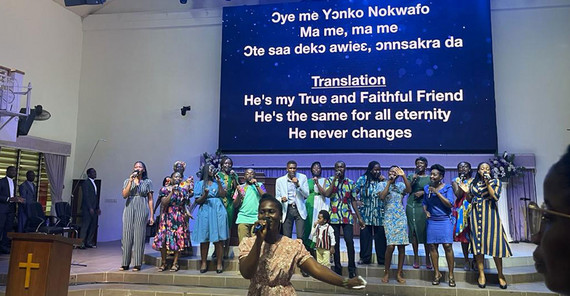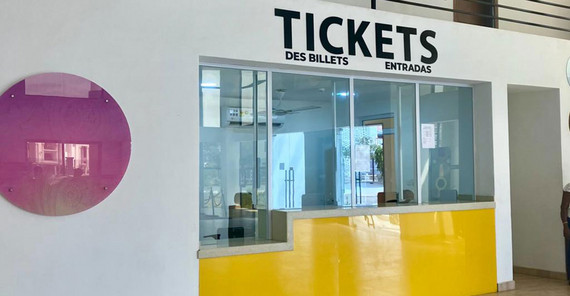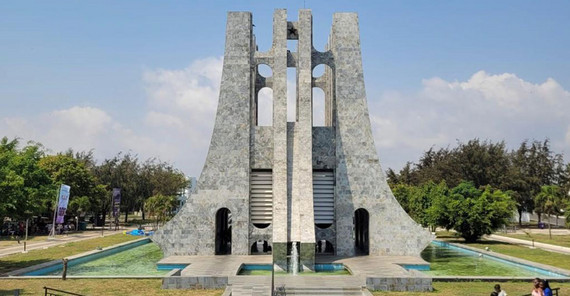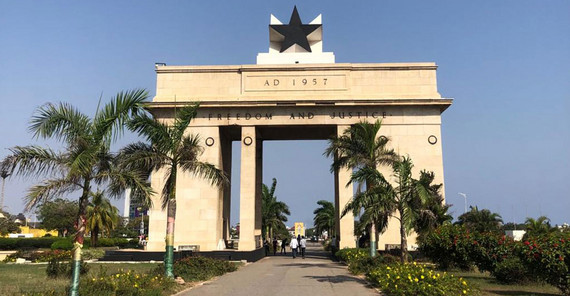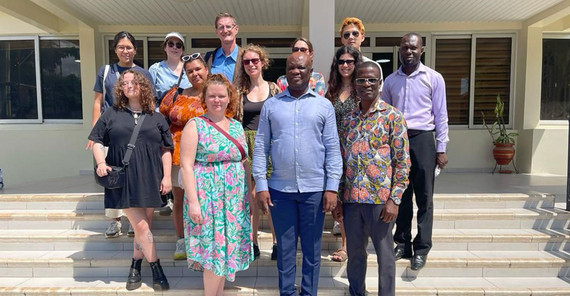Day 4: Visit the most important memorial sites in Accra
Today, a visit to the Legon Interdominational Church on the campus and the Kwame Nkrumah Memorial Park provides a contrast to life in Ododiodioo. We are warmly welcomed to the service in the church, which is held in English, and are immediately impressed by a lively choir performance. We were particularly struck by a song that was sung in the indigenous language and simultaneously translated into English for the whole congregation (see picture).
The Kwame Nkrumah Memorial Park is one of the most important memorials for the Ghanaian people, as it is the site of the grave of Ghana's first president, Francis Nwia Kofi Kwame Nkrumah. The president was one of the first African states to lead Ghana to independence. The exciting tour through history leads through the beautiful park and a museum that illustrates the president's private and political career as well as his work. Here, too, we immediately notice the multilingualism, both audibly and visually (see picture). In addition to many Ghanaians of all ages, school classes and student groups also visit this important memorial.
After an extensive lunch break, we continue to the Independence Arch. This impressive gate is an important symbol for the whole of Ghana and a landmark for the country's independence, which was achieved in 1957. It is located directly opposite Independence Square, a meeting place for official rallies and festivals. These include the annual independence celebrations. Tired from the heat, we pack our bags for the journey ahead and fall contentedly into bed.
Day 5: Visit to the University of Education Winneba
At 9 a.m. we take a minibus to Winneba to the School of Education. First we meet Prof. Samuel K. Hayford, Professor of Special Education, and take the opportunity to ask him and his colleagues all kinds of questions about the education system in Ghana. We learn that it is based on the systems of other countries, including Germany. Education begins in kindergarten and continues through primary and secondary school to university. Unlike in Germany, trained teachers are assigned to schools depending on where there is a need. The state makes this allocation and also pays teachers according to their qualifications. The average class size is 50 children, who see the teacher as an authority figure. With the exception of kindergarten and local language classes, all subjects are taught in English. According to Professor Hayford, there are a large number of local languages even within the 16 regions of Ghana.
We are then welcomed by the Pro-Vice-Chancellor Prof. Victor Antwi. We are also able to ask and answer his questions, and it becomes clear that both sides are interested in strengthening the existing partnership.
Back at our accommodation, we end the evening together in a relaxed atmosphere and with a discussion about school education and teaching.
To the travel diaries published so far (in German): https://www.uni-potsdam.de/de/up-entdecken/upaktuell/up-unterwegs-reisetagebuecher

